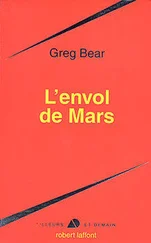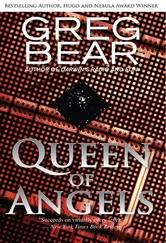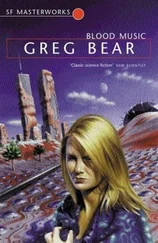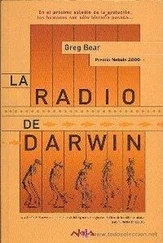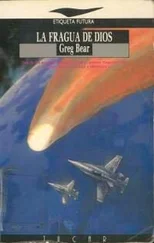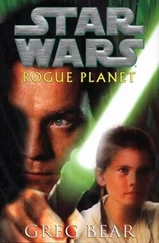Greg Bear - Anvil of Stars
Здесь есть возможность читать онлайн «Greg Bear - Anvil of Stars» весь текст электронной книги совершенно бесплатно (целиком полную версию без сокращений). В некоторых случаях можно слушать аудио, скачать через торрент в формате fb2 и присутствует краткое содержание. Год выпуска: 1992, ISBN: 1992, Издательство: Legend, Жанр: Фантастика и фэнтези, на английском языке. Описание произведения, (предисловие) а так же отзывы посетителей доступны на портале библиотеки ЛибКат.
- Название:Anvil of Stars
- Автор:
- Издательство:Legend
- Жанр:
- Год:1992
- ISBN:0-7126-3890-3
- Рейтинг книги:4 / 5. Голосов: 1
-
Избранное:Добавить в избранное
- Отзывы:
-
Ваша оценка:
- 80
- 1
- 2
- 3
- 4
- 5
Anvil of Stars: краткое содержание, описание и аннотация
Предлагаем к чтению аннотацию, описание, краткое содержание или предисловие (зависит от того, что написал сам автор книги «Anvil of Stars»). Если вы не нашли необходимую информацию о книге — напишите в комментариях, мы постараемся отыскать её.
. Earth is gone, completely destroyed by a ruthless alien. Hundreds of years away, a handful of exiles hurtles through the galaxies in a quest for revenge, armed with powers they do not understand—and determined to find and punish the killers who murdered their world.
Anvil of Stars — читать онлайн бесплатно полную книгу (весь текст) целиком
Ниже представлен текст книги, разбитый по страницам. Система сохранения места последней прочитанной страницы, позволяет с удобством читать онлайн бесплатно книгу «Anvil of Stars», без необходимости каждый раз заново искать на чём Вы остановились. Поставьте закладку, и сможете в любой момент перейти на страницу, на которой закончили чтение.
Интервал:
Закладка:
Three children had committed suicide since the journey began.
Once they had numbered eighty-five.
Martin in the lead, thoughtful and quiet, they emerged into the center of the third homeball. Here the lighting was bright as a sunny day, lines and spots of warm luminosity varying in angles and brightness as they progressed toward the weapons stores.
For the last three years, they had been training in the actual vessels they would use in a real encounter. They had not yet ventured outside the ship for external flight and were confined to the hemisphere of the weapons stores, training with simulations. The simulations were convincing, but the children were beginning to grumble. Martin felt their frustration acutely. How long must they wait to actually fly?
“Fall to,” Martin said. The group broke line to form a hemisphere behind him. “Here’s today.” He slaved their wands to his and each child saw what he had planned a few hours earlier. “We’ll be dealing with an offense, kinetic weapons with passive tracking, ambush near-planet. The planet is a gas giant, and we’re taking the Dawn Treader into a graze to refuel.”
Graphics projected by his wand illustrated the procedures. They had performed this drill before; it used maneuvers necessary to other scenarios and was good general exercise.
“Let’s do it. Four hours’ training today, triple squeeze.”
The children groaned; triple squeeze condensed drill time by two thirds. It was exhausting; it also got them out sooner, and Martin needed to make his tenday report to the moms before the communal dinnertime.
The weapons locker was a broad blister on the port side of the third homeball. Martin led his group to the wide bulkhead separating the locker from the rest of the homeball. He drifted to a smooth, unmarked, curved wall and the wall opened to a circle, exhaling a sigh of colder air. Stephanie smiled at Martin and swept her arm forward magnanimously. “You first, Pan,” she said. Martin laddered into the cavernous space beyond.
All piloted weapons were stored here, and all the smaller remotes and other mobile equipment. Martin glanced up at the interior. When weightless, “up” was pointing forward or away from a door in all directions; “down” the direction of a door or neck, or pointing aft. One came up into a room, down out of a room, up into the ship’s nose, or down to the third homeball.
Inside the locker, smaller bubbles of gray spotted the pale gray and brown walls like sporangia on fern leaves. The comparison was apt; these held millions of tiny robots, makers and doers, some the size of microbes, some a meter wide, most no larger than a human fingernail. Makers could burrow deep into a moon or planetary surface and create weapons of mass destruction out of the raw materials available. Doers could insinuate themselves into many kinds of machinery and break them down.
At the end of pylons or snared in pale fields hung matte gray tubes three meters thick and ten to twenty meters long. Gray ovoids, saucers and sausage-packed spiked cylinders five to twenty- five meters across were stacked double and triple, gripped by fields wrapped around pylons.
Entering the locker, Martin always felt as if he had walked into a sculpture hall dedicated to geometric abstractions, or onto a microscope slide of plankton and bacteria magnified huge. The style—if one could think of a style with regard to such simple shapes—was the same as the style Martin had come to associate with the moms, the Central Ark, and the general design of the Dawn Treader : utilitarian, muted basic colors, a subdued raw metal appearance for all surfaces.
Martin counted the piloted weapons stored here: not including those hidden in the blisters, there were ninety separate pieces.
“Let’s study,” Stephanie said, swinging down from the middle of the ranked weapons. They gathered at their craft.
The bombships and rifles opened their sides with soft hisses. The children deftly kicked themselves into the cockpits. Ladders vanished once the hatches smoothed shut. Martin entered his rifle last, feeling the soft interior conform to his shape.
“This craft belongs to Martin Spruce,” the rifle told him. The children knew the voice of the moms, warmly impersonal, craft voices cool and technical, and ship’s voice, rarely heard, soft and pleasant, not quite feminine. Martin believed they were actually all the same, but that was one of the questions not answered.
“All wands slaved to your wand, simulation drill,” the craft voice told him. “May we draw the simulation plan from your wand?”
“Yes,” Martin said.
The simulation began. The craft did not move from their docked positions. The children became enmeshed in the drill, and time passed.
They skimmed the cloud tops of a gas giant planet three times larger than Jupiter, while the Ship of the Law grazed the atmosphere ahead of them, wrapped in plasma friction fire. The Dawn Treader’s wing-like scooping fields dragged huge gouts of atmospheric hydrogen and methane and ammonia from the thick atmosphere, slowing the ship at dozens of g’s, torquing it tail over nose, and the smaller weapons sped ahead of the ship, encountering enemy craft, setting up a circuit of protection, drawing the attention of kinetic weapons designed to smash into them at high speed, using the roiling energies of the fireball created by the Dawn Treader’s passage to deflect energy beams…
As usual, they did well.
They had done well at this sort of drill for years now. It was second nature to them. It had also become a kind of game, difficult to connect to reality, to the actual performance of the Job itself. However convincing the simulations—and they were very convincing—they no longer expanded the children’s skills.
Still, they drilled tenday after tenday, year after year…
Growing older. Martin could feel their impatience, and it worried him.
He was responsible. He had been Pan for six months.
Martin laddered deep past the pipes and conduits in the long first neck of the Ship of the Law, going to the forward homeball and the schoolroom to meet with a mom and report for the tenday. Aboard the Dawn Treader there were twenty-eight hours to each day, three tendays in a month, twelve months in a year. Once each tenday, it was Martin’s duty as Pan to report to the mom. To tell what the children had been up to, and listen if the mom had anything to say.
He completed his climb through the neck, into the homeball and down a long cylindrical corridor to the homeball’s center. His ladder field stopped at a wide hatch; he kicked away and grabbed a metal pole within, swinging gracefully until the friction of his hand stopped him.
The schoolroom periphery was cool and dark. Light from the corridor cut at an angle and made a spot on the opposite curved wall.
Martin had arrived fifteen minutes early. He was alone.
Under weightless conditions, the schoolroom took a shape like the empty interiors of two wheels run through each other, sharing a common center, axes perpendicular. Twenty meters below, at the hub of the schoolroom, the homeball’s center, hung a spherical blackness filled with stars, a window to what lay outside the ship—but not directly viewed; like so much else in their life, a simulation.
At the ship’s present speed, the universe outside the Dawn Treader did not much resemble this pretty simulation. Outside the true stars were gnarled and twisted, rotated and compressed into a scintillating ring that flexed around the ship like a loose bracelet, blue on one side—the direction in which they flew—and red on the other, with a muddy and narrow mix of colors between. Ahead lay a pit empty to the unaided eye but in fact filled with hard radiation; behind, another pit, touched with weird sparkles of red-shifted X-ray sources, distant galaxies dying or being reshaped, dead stars ghoulishly eating their young.
Читать дальшеИнтервал:
Закладка:
Похожие книги на «Anvil of Stars»
Представляем Вашему вниманию похожие книги на «Anvil of Stars» списком для выбора. Мы отобрали схожую по названию и смыслу литературу в надежде предоставить читателям больше вариантов отыскать новые, интересные, ещё непрочитанные произведения.
Обсуждение, отзывы о книге «Anvil of Stars» и просто собственные мнения читателей. Оставьте ваши комментарии, напишите, что Вы думаете о произведении, его смысле или главных героях. Укажите что конкретно понравилось, а что нет, и почему Вы так считаете.


